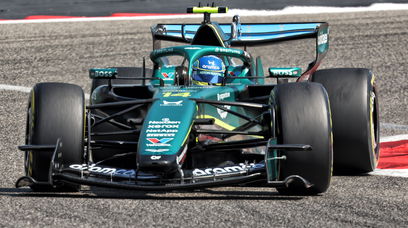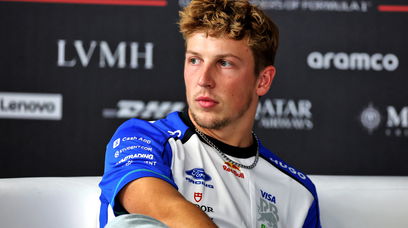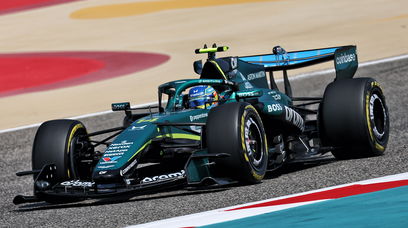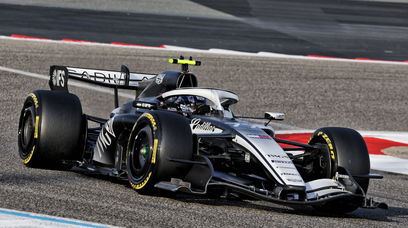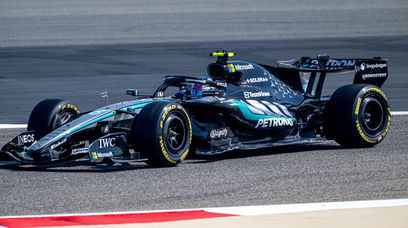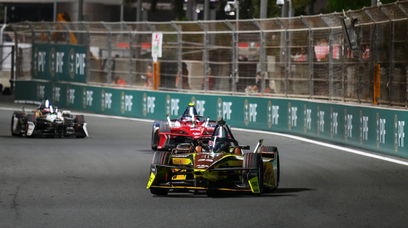2021 got off to a pretty positive start for Esteban Ocon. The Frenchman appeared to have recovered the form that he'd shown prior to 2019, the year that he was forced to take a reserve driver position at Mercedes after being unable to secure a seat on the grid. In the early races of the 2021 season, Ocon finished in the top 10 for four consecutive weekends, and crucially seemed to be outperforming teammate Fernando Alonso, something not many drivers to have raced alongside the Spaniard in the same team have managed to do. Given this run of impressive performances, it is perhaps not surprising that Alpine were keen to retain Ocon's services, and the two parties agreed a multi-year deal to keep the 24-year-old at the team until 2024. But since this was announced in mid-June, Ocon has suffered a quite dramatic dip in form. There have been some poor qualifying performances, with the Frenchman unable to get out of Q1 at the Styrian and Austrian Grand Prix. On Sundays, Ocon has failed to score any points since Monaco, and has also been forced to retire on the first lap of a Grand Prix on two occasions. To further rub salt into the wound, Alonso is now outperforming his younger teammate. And whilst he was being linked to a potential move to Mercedes during his stronger showings in the earlier part of the season, Ocon's multi-year deal means he has now officially missed out on that opportunity, which could possibly go to fellow young driver George Russell - who, incidentally, is also generally outperforming Ocon in the Williams. Ocon seems to have been at a loss to explain his change in fortunes. Following his poor run in the triple-header of France, Styria and Austria, the French driver urged Alpine to change as much as possible on his car. Meanwhile there have been suggestions from some critics that Ocon is being 'Vandoorned' - a reference to Stoffel Vandoorne, whose two-year F1 career arguably suffered due to McLaren teammate Alonso almost consistently outpeforming him.
This sudden change in form seems peculiar. The combination of Ocon and Alpine appears, on the outside at least, to be an ideal one; both French, both had been working well together, both benefiting from Ocon's experience of working with the team in 2020. Yet rather than the security of the multi-year contract providing an added boost to this situation, it seems to have had the opposite effect, and this is where problems could start to fester in terms of regret on both sides, almost like in a rushed marriage. Annulments are possible in F1, but are perhaps bafflingly more complicated. It is still far too early to write off the Ocon/Alpine relationship of course. Yet there does seem to be evidence that signing a multi-year contract can sometimes be a hindrance rather than a strength for a Formula 1 driver. Daniel Ricciardo has a multi-year deal with McLaren. But, as has been well documented, things haven't got off to the smoothest of starts. Ricciardo has struggled to become comfortable in the car following his switch from Renault - now known as Alpine - at the end of 2020. There have been signs of improvement at certain points and, as is the case with Ocon, it is too soon to suggest that the whole relationship is doomed. Both parties have so far exercised patience. Yet, with the incredibly impressive recent performances of Ricciardo's teammate Lando Norris, there could surely be a point where both Ricciardo and McLaren question whether the situation is still one that they want to commit to in the long-term.
It was of course a strange time for F1 when Ricciardo signed for McLaren. The Australian agreed his deal in May 2020, with the announcement prompted by the rush in the driver market when Ferrari dropped Sebastian Vettel - and all before the delayed 2020 season had even begun. The fact that Ricciardo had already agreed to leave Renault before he had even started his second season with them proved challenging in his relationship with the French team. Former team boss Cyril Abiteboul seemed to take it particularly badly, as was documented in Netflix's Drive To Survive series. The plan had been for Ricciardo and Renault to be a long-term project, but Ricciardo - as Abiteboul saw it - had bailed early. Another instance where what had been planned as a multi-year relationship, even if it wasn’t technically as such on paper, didn’t quite work out as planned. Multi-year deals signed before a driver has even joined a team surely carry a level of risk. Ricciardo wasn’t the only one caught up in this unusual situation; during this period in the 2020 pre-season, Carlos Sainz also signed for two years with Ferrari. This came just as Ferrari were about to endure one of their most difficult years ever, during which they struggled in comparison to McLaren, who Sainz was driving for at the time. As Ferrari's struggles unfolded in 2020, Sainz seemed to be constantly asked by the media if he was regretting the move. He always denied it of course - how could he not? - but we’ll never know if he secretly had doubts. The same could perhaps be asked of Charles Leclerc, who signed his contract to stay at Ferrari until 2024 - a rare five-year contract, possibly the longest deal ever in F1 history - at the end of 2019, just before their challenging year in 2020. Whilst the Scuderia's fortunes have improved since, the prospect of things not getting better from their 2020 form must surely have been a concern for Leclerc.
This is where the exit clause comes in. Obviously Formula 1 contracts are a very private business, with the details kept away from the rest of us, but there has often been speculation about the existence of possible get-out clauses. See Max Verstappen, who has a multi-year deal with Red Bull until 2023. With the team’s recent form, it seems unlikely that the Dutchman would want to exercise an exit clause should one exist at all. But the presence of such a clause is probably wise in some situations where a relationship breaks down. Remember when Kimi Raikkonen walked away from his first Ferrari career at the end of 2009, despite having another year left on his contract? Awkward situations like this probably give the legal - not to mention the financial - departments at F1 teams a bit of a headache to say the least. And anybody familiar with MotoGP will have witnessed a similar situation in recent weeks, with Maverick Vinales shockingly deciding to leave his Yamaha contract with still a year to run. Sometimes relationships break down in such a bitter way that the multi-year deal is just no longer viable. This supposed 'multi-year curse' isn't always quite this dramatic of course, yet even in small ways it can still seemingly effect some of the biggest names in the sport. On a very minimal scale, the curse appeared to strike Lewis Hamilton at the Austrian Grand Prix. It was announced on Saturday morning, just hours before qualifying, that Hamilton had agreed a two-year contract extension, keeping him at Mercedes in 2022 and 2023. Team boss Toto Wolff suggested that the deal was agreed early in order to allow Hamilton and the team to focus on their 2021 title battle with Red Bull, rather than being distracted by off-track matters.
One could imagine that getting this done and dusted might have given both Hamilton and the Silver Arrows a boost going into the rest of the weekend. Yet it turned out to be a tough couple of days for them in terms of the title challenge. Hamilton qualified in fourth, with Verstappen on pole, Valtteri Bottas in second and Lando Norris an impressive third. The pace of the Red Bull left the seven-times World Champion fearing that Verstappen would take a dominant win on Sunday - and that proved to be the case, with Hamilton initially running in second but slipping back to fourth during the Grand Prix due to some damage on his car. Obviously it would be absurd to suggest that one difficult weekend could make Hamilton regret deciding to extend his time in Formula 1. In fact, Hamilton has cited the challenges he has faced in the 2021 season as being key in encouraging him to stay in the sport. The Briton is enjoying the fight and won't give up easily. In this respect then, the 'curse' can’t really touch Hamilton - he is relishing whatever might be thrown at him. One of these future challenges thrown at Hamilton could potentially be a new teammate in the form of George Russell, with speculation continuing over whether the youngster will be given an opportunity at Mercedes in 2022 at the expense of Valtteri Bottas. Russell has said that, wherever he signs, his preference would be for a multi-year deal. The British driver obviously sees this as a positive, allowing him to continue to develop, and this can definitely be the case; look at Lando Norris, in the form of his life after recently signing a new contract to extend his time with McLaren. But, as the likes of Ocon have shown, the impact of the multi-year deal can swing both ways, something Russell might want to bear in mind before signing on the dotted line.
Most read

